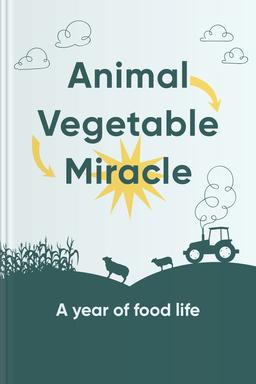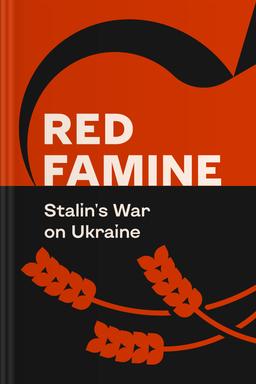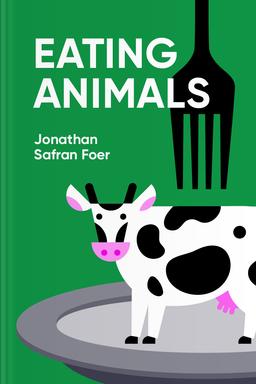What is How Not to Kill Your Houseplant about?
This practical guide offers essential tips for nurturing your houseplants, targeting those who struggle with plant care. It covers common pitfalls and provides solutions to help even the most horticulturally challenged individuals keep their greenery thriving. With straightforward advice, troubleshooting guidance, and easy-to-follow instructions, this book empowers readers to transform their homes into vibrant plant-filled spaces without the fear of killing their leafy companions.
Who should read How Not to Kill Your Houseplant
- Beginner plant owners seeking green thumb advice.
- Busy individuals wanting low-maintenance houseplant solutions.
- Anyone struggling with houseplants and seeking easy tips.
Animal, Vegetable, Miracle
by Barbara Kingsolver, Camille Kingsolver, Steven L. Hopp, PhD
What is Animal, Vegetable, Miracle about?
This enlightening narrative chronicles a family's journey towards self-sustainability over the course of a year. Emphasizing local farming and seasonal eating, the book intertwines personal anecdotes with detailed reflections on the environmental impact of food choices. Through engaging storytelling and practical advice, it encourages readers to reconnect with the origins of their food while promoting sustainable practices and a deeper appreciation for nature.
Who should read Animal, Vegetable, Miracle
- Food enthusiasts seeking sustainable eating habits.
- Eco-conscious individuals interested in gardening and farming.
- Families wanting to explore local food sources together.
What is Red Famine about?
This gripping historical account explores the devastating man-made famine in Ukraine during the early 1930s, orchestrated by the Soviet regime under Stalin. It examines the political motives behind the famine, the suffering endured by millions, and the long-term impacts on Ukrainian society and identity. Through meticulous research and personal narratives, the book reveals a dark chapter of history marked by oppression, resilience, and the struggle for survival.
Who should read Red Famine
- History enthusiasts seeking to understand Soviet policies.
- Students studying 20th-century Eastern European history.
- Readers interested in human rights and governmental oppression.
What is Eating Animals about?
This thought-provoking exploration delves into the ethical, environmental, and emotional dimensions of meat consumption. It combines personal narrative, philosophical inquiry, and investigative reporting to challenge readers' beliefs about the foods they eat. Through poignant stories of factory-farming practices and the impact of animal agriculture on the planet, the work prompts a re-evaluation of dietary choices and their moral implications, encouraging a deeper connection to the sources of our food.
Who should read Eating Animals
- Animal rights activists seeking deeper understanding
- Food enthusiasts exploring ethical eating
- Environmentalists concerned about sustainable agriculture practices
What is Food Fix about?
This book explores the interconnectedness of food, health, and the environment, advocating for a holistic approach to eating and agriculture. It highlights the detrimental effects of processed foods and industrial farming on personal well-being and the planet. By proposing actionable solutions and a nationwide shift toward healthier, sustainable food systems, the author empowers readers to make informed choices that benefit individual health, communities, and the Earth.
Who should read Food Fix
- Health-conscious individuals seeking dietary guidance.
- Environmental advocates concerned about sustainable food practices.
- Community leaders aiming to improve local food systems.
What is Silent Spring about?
This groundbreaking work exposes the dangers of pesticides and their devastating impact on the environment, particularly on birds and ecosystems. Through meticulous research and compelling narratives, the author argues for the protection of nature and advocates for ecological awareness. It highlights the interconnectedness of life and the consequences of human actions on the planet, ultimately igniting a movement for environmental conservation and awareness.
Who should read Silent Spring
- Environmental activists seeking inspiration and knowledge.
- Students studying environmental science and ecology.
- Nature enthusiasts passionate about conservation and wildlife.





